-
 +17 +1
+17 +1Roads of destruction: we found vast numbers of illegal ‘ghost roads’ used to crack open pristine rainforest
What harm can a road do? Plenty. Once built, illegal roads let loggers, miners, poachers and landgrabbers into the jungle, and the felling begins.
-
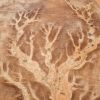 +9 +1
+9 +1Australia’s threatened plant and animal numbers have been halved in just 2 decades
An annual, independent assessment of Australia’s environment has found several silver linings amid longer-term declines exacerbated by climate change.
-
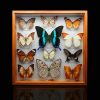 +29 +1
+29 +1The Hidden Butterfly Trade
How the lucrative market could spark conservation.
-
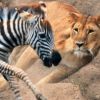 +25 +1
+25 +1Turns Out There's One Animal Powerful Enough to Mess With Lions' Feeding Habits
In a stark example of how everything on our living planet is interconnected, one species of tiny, invasive insects has reduced lions' abilities to feast on zebras.
-
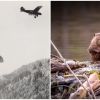 +16 +1
+16 +1Why NASA Is Watching Where Idaho’s Parachuting Beavers Landed
The mini-paratroopers have a new role to play today.
-
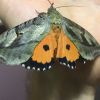 +46 +1
+46 +1We thought we’d find 200 species living in our house and yard. We were very wrong
An ecologist, a mathematician and a taxonomist were locked down together in a suburban house. So they counted all the species of plants and animals they could find.
-
 +33 +1
+33 +121 species removed from endangered list due to extinction, U.S. wildlife officials say
The Fish and Wildlife Service said 21 species, including a mammal, birds, fish and mussels, are being removed from the endangered list because they're now considered extinct.
-
 +54 +1
+54 +1Expert Explains Why Whales Often Wear Hats Made of Seaweed
If a whale comes across a patch of kelp, it may well start playing with it. This practice may also be useful to rid whales of unwanted passengers.
-
 +20 +1
+20 +1Rivers are rapidly warming, losing oxygen: Aquatic life at risk, study finds
Rivers are warming and losing oxygen faster than oceans, according to a Penn State-led study published in the journal Nature Climate Change. The study shows that of nearly 800 rivers, warming occurred in 87% and oxygen loss occurred in 70%.
-
 +25 +1
+25 +1Are humans a cancer on the planet? A physician argues that civilization is truly carcinogenic
In "Homo Ecophagus," Dr. Warren Hern gives human activity a deadly diagnosis
-
 +35 +1
+35 +1Spooky, stealthy night hunters: revealing the wonderful otherworld of owls
Owls are masterpieces of adaption, having honed their expertise as night predators over millions of years. Two new books delve into the world of these birds and the battle to protect certain species.
-
 +4 +1
+4 +1A worm has been revived after 46,000 years in the Siberian permafrost
Scientists have revived a worm that was frozen 46,000 years ago — at a time when woolly mammoths, sabre-toothed tigers and giant elks still roamed the Earth.
-
 +24 +1
+24 +1The Surprisingly Sinister History Behind Texas’s Cliff Chirping Frog
It’s named for frontier naturalist Gabriel Marnoch, who led a life of crime while discovering new species.
-
 +19 +1
+19 +1Australian earless dragon last seen in 1969 rediscovered in secret location
Victorian grassland earless dragon was once common west of Melbourne but numbers declined due to habitat loss and predators such as feral cats
-
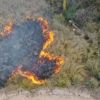 +22 +1
+22 +1Before the colonists came, we burned small and burned often to avoid big fires. It's time to relearn cultural burning
Before the colonists came, we managed the land with careful use of cool burns. To stop giant bushfires, we have to learn again how to care for country.
-
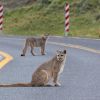 +23 +1
+23 +1While humans were in strict lockdown, wild mammals roamed further – new research
Researchers tracked 2,300 wild mammals during the strict 2020 lockdowns and found they moved 73% further than in the previous year.
-
 +15 +1
+15 +1How climate change is making our allergies worse
Between April and May, the birch pollen season is in full swing. Eyes water, throats sting, noses run: doctors call these immune reactions "allergic rhinitis." In France, nearly one adult in three is said to suffer from a pollen allergy, according to the French National Agency for Food, Environmental and Occupational Health Safety (ANSES).
-
 +29 +1
+29 +1An epic global study of moss reveals it is far more vital to Earth's ecosystems than we knew
Data from 123 sites across all continents, including Antarctica, show mosses affect all major soil functions critical for sustaining life on Earth.
-
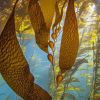 +15 +1
+15 +1A Hidden Underwater Resource Is Worth Way More Than Expected, Study Reveals
Researchers have just calculated the value society gets from a common but hidden underwater resource, and found it's way higher than we ever expected.
-
 +16 +1
+16 +1Could the dodo come back from extinction?
The dodo's genome has been sequenced from a DNA sample, but that's just the first hurdle to overcome in bringing a species back from the dead
Submit a link
Start a discussion




















